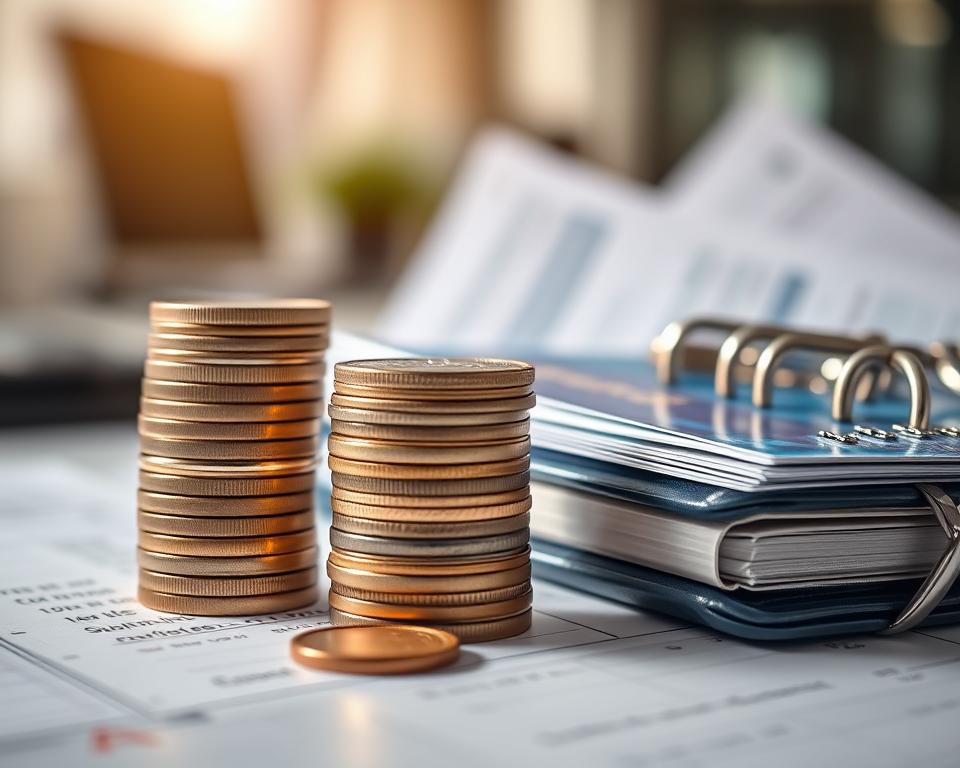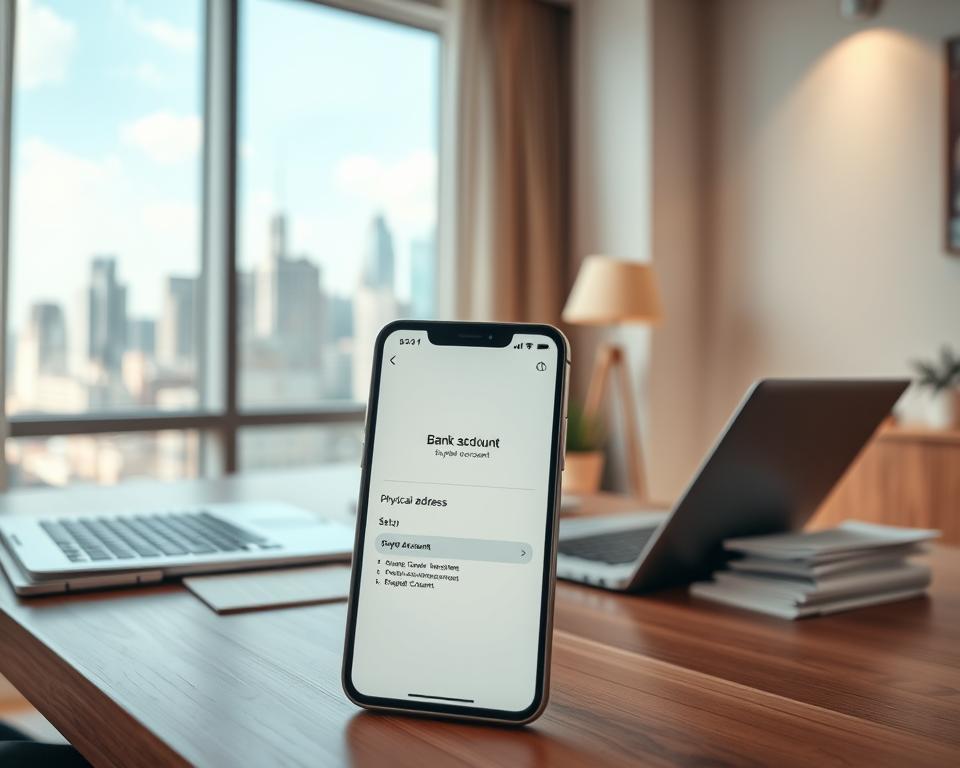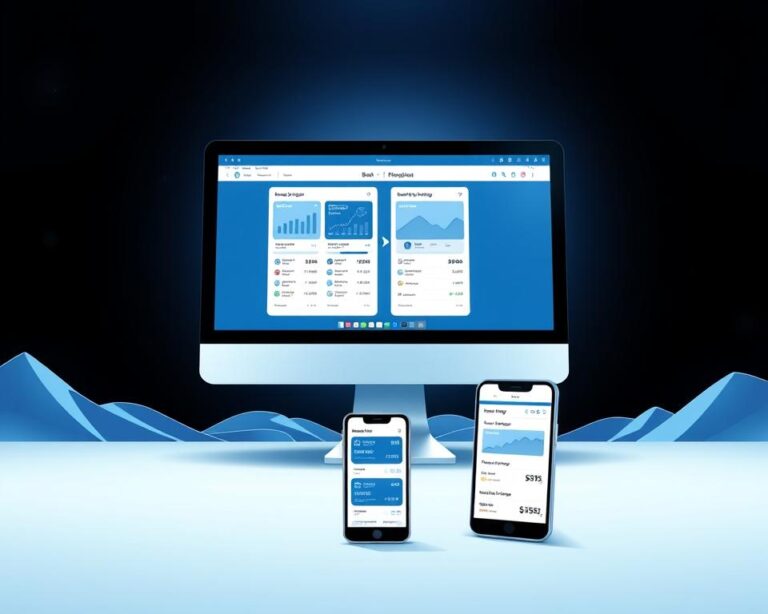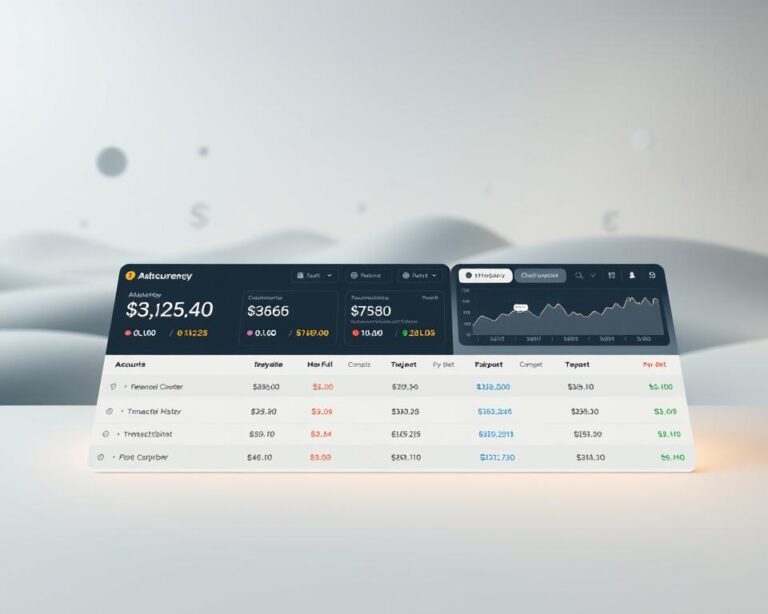Advertisement
Did you know that about 25% of American adults are “underbanked”? They don’t have access to traditional banking. This makes it hard to open a bank account without an address. For many, having a bank account without an address can improve their financial situation.
We will look into how to get a bank account without an address. We’ll also cover what banks require and options for those without proof of address.
Understanding the Need for a Bank Account
A bank account is key for managing money well. It makes tasks like paying bills and sending money easy. The need for a bank account comes from wanting to handle money simply and organized.
Having a bank account brings more than just ease. It helps track money coming in and going out. Without one, using cash can lead to higher costs and harder budgeting.

Banking services offer safety that cash can’t match. Bank accounts are insured and easy to access. This makes them a solid choice for daily money needs. In short, having a bank account helps a lot with managing money.
Why Banks Require a Physical Address
Banks need a physical address for new accounts in the U.S. This is because federal laws require them to verify customer details. A physical address helps prevent crimes like money laundering and identity theft. It makes sure each account holder is who they say they are.
Verifying addresses helps banks keep their systems safe. They can send important documents like account statements and debit cards to the right person. This makes communication better and keeps them in line with the law.

Is It Possible to Open a Bank Account Without a Physical Address?
Opening a bank account without a physical address is tough, but not impossible. Major U.S. banks usually need a physical address to verify your identity. However, some banks have exceptions that let you open an account without an address.
Some groups, like military personnel or people in shelters, might get special help. They can open a bank account without a traditional address. Looking into different banks might show you options that help those without a permanent address.
Exploring your options can help you find ways to open a bank account. This can make it easier to use banking services, even if you don’t have a fixed address.
Open a Bank Account Without Proof of Address
People who can’t get a bank account because they don’t have proof of address have options. Some groups find it easier to get a bank account because of their situation. Knowing what’s available can help them get the banking services they need.
Options for Specific Groups
Members of the military often need special banking solutions. They can use a FPO (Fleet Post Office) or APO (Army Post Office) address to open a bank account. Homeless veterans can also get a bank account by using their VA representative’s address.
Exploring Non-Resident Applications
Non-residents might find it easier to get a bank account from international banks. Banks like HSBC and Charles Schwab offer accounts for global clients. These banks have flexible options for non-residents, making it easier for them to get a bank account.
What Counts as Proof of Address?
To open a bank account, you need to show proof of address. Banks have a list of documents they accept to verify your address and identity. These include:
- Recent utility bills
- Bank statements
- Lease agreements
- Official government correspondence
These documents must show your name and address clearly. This rule helps banks keep their environment safe for everyone. Always check with your bank to see what documents they accept, as rules can change.
Alternatives if You Don’t Have a Physical Address
For those without a traditional address, many banking solutions exist. Looking into international banking options can help find the right fit for your financial needs. Many banks offer special services for people without a fixed address.
Considerations for International Bank Accounts
International bank accounts are a good alternative to a physical address. They are often used by non-residents or travelers. They have more flexible rules for address checks. Here are some important points:
- Some banks, like HSBC and Charles Schwab, let you open accounts without a domestic address, especially for expatriates.
- Services like Wise make managing money easy, allowing you to send and receive money without needing a permanent address.
- International accounts also offer better exchange rates and lower fees for international transactions.
In summary, looking into no address bank accounts and international banking is a good way to manage finances without a physical address. Each person’s situation is different. Knowing what’s available can help find the best banking solutions.
Digital Banks: A Flexible Solution
Traditional banking is getting too strict. Digital banks are stepping in as flexible options, especially for those without a fixed address. They offer features that meet the needs of many, including those who want mobile banking without needing an address. Neobanks in the U.S. are leading the way to a more open financial world.
Popular Digital Banks That May Not Require an Address
Many digital banks don’t ask for a physical address, making money easier to access for lots of people. Chime and Revolut are great examples. They focus on verifying your identity rather than needing an address, perfect for those without a permanent home.
| Bank | Address Requirement | Key Features |
|---|---|---|
| Chime | Not required | No monthly fees, automatic savings, early direct deposit |
| Revolut | Not required | International transactions, cryptocurrency support, budgeting tools |
| Cash App | Not required | Peer-to-peer payments, investing options, Bitcoin trading |
These digital banks are game-changers for dealing with today’s financial services. They offer easy access to money and tools for managing it. They show how tech is making banking more about the user.
Guidelines for Opening an Account Without a Permanent Address
Opening a bank account without a permanent address requires careful planning. Knowing the right steps can make the process easier. You’ll need the right documents and understand what each bank requires.
Required Documentation for Application
The documents needed can change from bank to bank. But, there are some common ones that are often required. Here’s a list of typical documents you might need:
- Government-issued identification (e.g., driver’s license, passport)
- Social Security number verification (like a Social Security card or tax document)
- Alternative proof of address (e.g., a utility bill, lease agreement, or bank statement in someone else’s name with their permission)
- Proof of residency or temporary housing arrangements if applicable
Having the right documents is key to meeting bank rules and getting approved. Since each bank has its own rules, it’s smart to check their policies before applying.
Workarounds for Qualifying Without a Permanent Address
Many people struggle to open a bank account without a fixed address. There are ways to get around this problem. One good solution is to use a family member’s or friend’s address. You’ll need to show proof that you live there to meet the bank’s rules.
Another option is to join an Address Confidentiality Program (ACP). This is great for those who need to keep their address private, like survivors of domestic violence. The program gives you a safe address that banks might accept for opening an account.
These strategies help people deal with the tough rules of traditional banking. They make it possible to get the financial services you need, even without a permanent address. By using these methods, you can find creative ways to manage your banking needs.
Conclusion
Getting a bank account without a physical address can seem hard, but it’s doable. People who move a lot or don’t have a fixed home can still manage their money. They can look into digital banks and international accounts.
Knowing what each bank needs is key to getting a bank account. This knowledge helps a lot.
Thinking about bank account access leads to a big point: knowing your options is crucial. Using address programs or online banking can help people manage their money. It lets them avoid the usual banking rules.
By using these new ways to bank, everyone can get the banking services they need. This makes sure everyone can take part in the economy.



